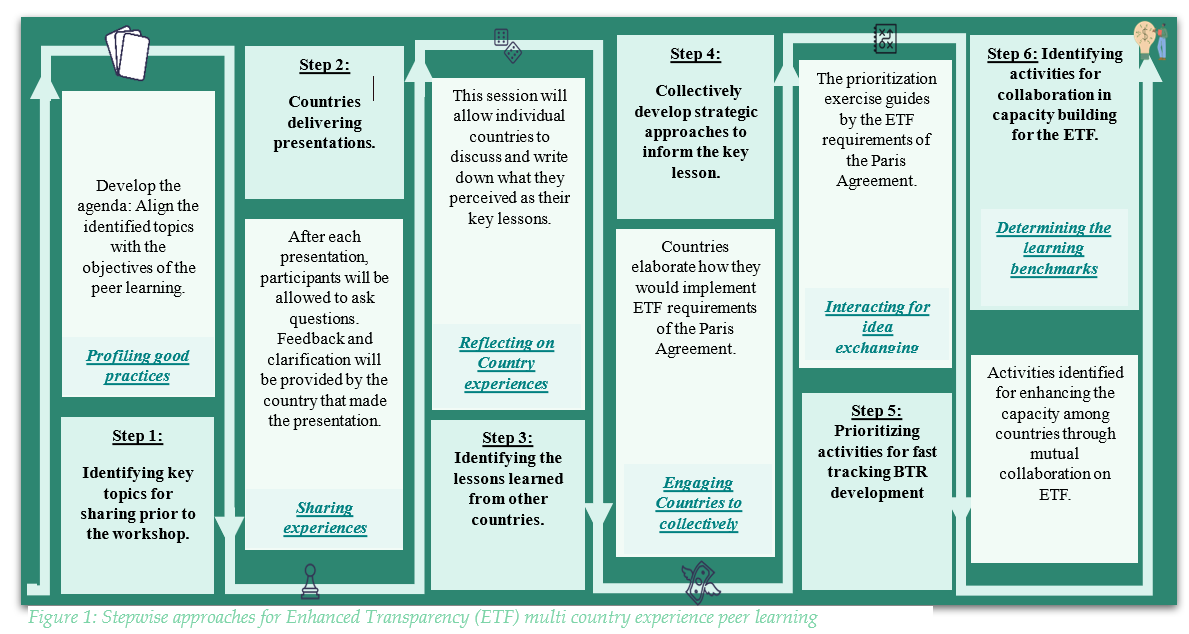Introduction
The Paris Agreement (PA) under Article 13 established the Enhanced Transparency Framework (ETF) to build trust and confidence among countries and promote effective implementation of climate action enabled by the flow of support. ETF supports activities for tracking and reporting the progress of existing and future country commitments, with built-in flexibility included for developing country parties. Among the decisions that affect the Paris Agreement is for Parties to report on policies and measures they are implementing to achieve their NDC targets, in line with the ETF as outlined in Article 13 of the Paris Agreement. NDC countries have self-determined targets for mitigation and adaptation to meet the objectives of the Paris Agreement. Paris Agreement decision 18/CMA.1, annex, paras. 65–68 and 149, provide that parties select the indicators they will use to track progress in the implementation and achievement of their NDCs.
The output of ETF will serve as the critical input for the global stocktake, which is a five-year assessment of progress towards the goals of the PA. Parties to the PA began a new reporting phase, with the submission of the first Biennial Transparency Report starting in 2024. The ETF is imperative to build capacity and countries with functional systems to enable consistent reporting through Biennial Transparency Reports under the enhanced Transparency Framework.
OBJECTIVE
The main objective of peer-to-peer learning exchange is to foster technical and institutional capacities by exchanging experiences and enhancing the adoption of the best practices on developing the BTR and updating NDC 3.0 in six African countries toward the transition to enhanced transparency reporting.
APPROACH
This will be face-to-face training for four days of peer-to-peer learning exchange. The peer learning approaches for the exchange of multi-country experiences on enhanced transparency (ETF) will be utilized. The core approaches of peer learning to be utilized in this workshop include collaboration, reflection, communication, and self-peer assessment. Different activities in this peer learning allowed the exchange of both knowledge and experiences among countries and thereby facilitated a learning process.
CBIT-GSP will facilitate the learning sessions with various interventions and approaches, including discussions, group work, quizzes, and collective development of learning concepts per country.
The team of experts to participate in the peer learning exchange will be expected to share their experiences and lessons regarding the Enhanced Transparency Framework (ETF), sharing technical insights on developing the first BTR, and updating NDC 3.0 through their national CBIT projects. The key steps to be followed to build the learning concepts are highlighted in Figure 1.
